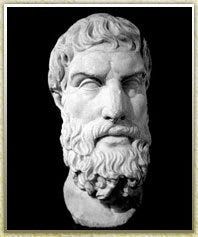Should you have a Facebook profile?
Should you have a Facebook profile?
Published on the Medium, 22 February 2019
At its 15th anniversary Facebook proudly claims 2,3 billion monthly active users. If one adds the Chinese equivalents, then internet social media users are two thirds of earth’s population.
The obvious question is, then, should you join them?

A lot can be said about the wisdom of crowds. It is true that Athenians thought it a good idea to invade Sicily, losing each one of the 15.000 men they sent and, as a result, the Peloponnesian war. It is also true that from a humanitarian perspective they also failed, having collectively decided to brutally slaughter everybody in Melos. And, one cannot forget that they decided to kill Socrates, whose execution led Plato to rationalistic utopias that, when taken seriously a few centuries later, led to the death of millions during the Second World War.
On the other hand, Athenian democracy did give us the political system most countries in the world have chosen to live by. This system is based on exactly acknowledging the wisdom of crowds. Shortcomings and failures are only useful to show us the work that (still) needs to be done, under Franklin’s stern warning “A republic, if you can keep it” and one of Churchill’s rare moments of compromise: “Democracy is the worst form of government, except for all the others”.
At individual level, categorising, whether by nature or by choice as per Aristotle’s approach, is one of the basic human mechanisms to cope with human life. Once categories formulated by a few individuals are shared by many then they become stereotypes or profiles.
Profiling may be at times insensitive, but it comes natural to all of us. Each one of us has his or her opinion about neighbouring nations, taxi drivers, dog owners, lawyers etc. Most of the time we even act upon them. For one never to do this, he or she would have to be superhuman.
This is why the law acknowledges profiling’s existence and only tries to regulate it, not prohibit it altogether. For example, discrimination is bad but positive action is good. Both however build on categorising humans. Europe’s constitution for the digital, the GDPR, allows automated profiling (whereby the machine abolishes human limitations and thus risks hurting people more) placing it however under strict (and hopefully well-balanced) restrictions.
In view of the above it could be said that crowds are indeed suitable for decision-making.
However, should one follow them?

Setting aside the logical trap that crowds are formed by each one of us, and therefore there is little meaning in each one of us not actually following them, let us assume an individualistic approach for a moment, and examine the viewpoint of somebody who still has doubts; Should he or she do what others do?
I suppose the answer is an unequivocal, it depends. It depends on who you are and what you are trying to accomplish.

Epictetus tells us that Agrippinus told Florus to “go ahead” when he was debating to attend Nero’s festival, maybe even participate. But when Florus asked him why he was not going himself, Agrippinus answered “I do not even consider the possibility”. Epictetus continues explaining that “because you think of yourself as no more than a single thread in the robe, whose duty is to conform to the mass of people just as a single white thread seemingly has no wish to clash with the remainder of the garment”. But, if you aspire to be the purple stripe, the garment’s brilliant hem, “don’t tell me then “be like the rest” because in that case I cannot be the purple stripe”.
Of course, what was at stake back then was nothing less than one’s life itself.
However, the same line of thinking has been used in Amazon’s owner recent soul-searching: If me, who is the richest man in the world, cannot stand up to extortion then who can — revealing thus a civic duty for the strong to be exercised also to the benefit of the less fortunate.
So, if you wish, and are able to, set an example then you can perhaps ignore the wisdom of crowds.
In all other cases, you should probably be more than happy, and you should consider yourself extremely lucky, to be able to be one among many.
Having established that crowds can be wise or, better phrased, that it is wise to follow crowds, it would seem that one should have a Facebook profile after all.
What a Facebook profile really is, and how best to use it, needs however to be examined in a separate note.